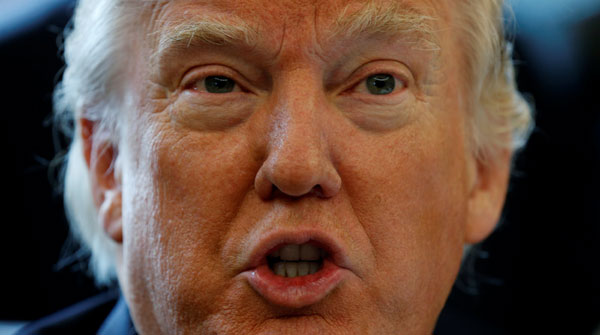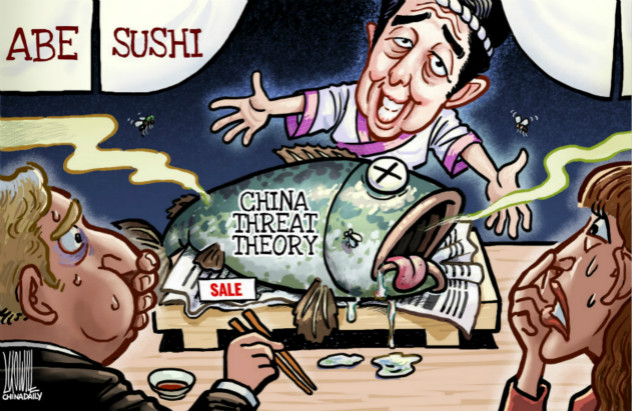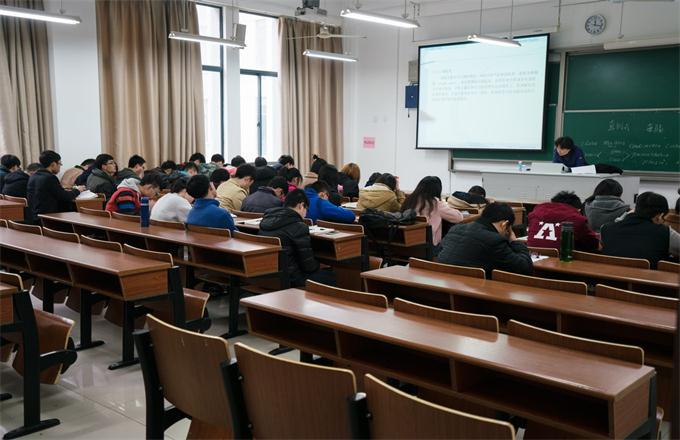Trump cannot afford a trade war with China
 |
|
US President Donald Trump speaks while signing executive orders at the White House in Washington January 24, 2017. [Photo/Agencies]? |
Many are concerned that the Trump Administration could start a trade war with China, if not, a military one. During the campaign, Trump threatened to designate China a "currency manipulator" on the first day he entered office. Now that he has been inaugurated, Trump has turned many of his threats into action, signing several executive orders, placing a travel ban on Muslims, withdrawing from the Trans-Pacific Partnership, and begun the process of erecting a wall along the US-Mexico border. But so far, he has chosen not to go through with his threat of designating China a currency manipulator, because he is worried about the consequences of doing so.
There are close to 1.5 billion people in China. As the Chinese economy grew, China became the biggest market in the world. China has bought more luxury goods than any other country. High-end car maker GE just released its sales figures for Cadillac in China in 2016. It sold 70 percent more luxury models in China than in the United States. Almost every major multinational corporation has some research and development operation in China. The Chinese market is too important for any multinational corporation to ignore. Not having a share in the Chinese market would be inconceivable for any multinational corporation.
During his campaign, Trump said that China stole American jobs. He knew that was a lie. The truth of the matter is that American multinational corporations went to China to maximize profits. In the early days, the same computer motherboard made in the US cost $400, cost just $92 to make in Mexico. When it was made in China, the cost reduced further to only $25, and 50 percent of the products could be sold there. In the past 30 years or more, American multinational companies have made tremendous profits and occupied a big share of the Chinese market while doing so.
If Trump meant what he said during his campaign about bringing American companies and American jobs back to the US, American multinational corporations will lose their competitive edge in China built up over the last 30 years. The market share they opened up would be taken over by their competitors from Europe and elsewhere, as well as Chinese companies. These American companies would lose their Chinese market share and their competitive advantage forever.
After the collapse of the former Soviet Union, Russian historians examined Russian and Soviet history. They came to the conclusion that the greatest mistake Russia and the former Soviet Union made was its break up with and withdrawal from China in the 1960s.
In 1960, after helping China build up its heavy industry, with more than 11,000 Russian and eastern European engineers engaged in the industrialization programs in China, Khrushchev decided to break contracts with China and withdraw all engineers from China, due to an ideological difference with the Chinese Communist Party leadership. Khrushchev wanted to teach the Chinese leadership a lesson, by creating some short-term economic difficulties for China. China did suffer tremendous economic set backs in the short term because of Khrushchev’s decision. But the former Soviet Union lost its influence and leverage in China in the long term. It lost access to the Chinese market. If the Soviet Union had not withdrawn its engineers from China, China would be dependent on Soviet technology for the long term. China would have used Soviet standards and bought Soviet technology and machinery for a long time to come. After the departure of the Russians, China was forced to develop its own industrial base and its own technological innovations, no longer relying on Russian goods.
Trump may want to bring back jobs to the United States, but American multination corporations cannot afford to lose their share of the Chinese market at this critical moment in history.
The author is a professor at Warren Wilson College, North Carolina, and a guest professor at Hebei University.





















